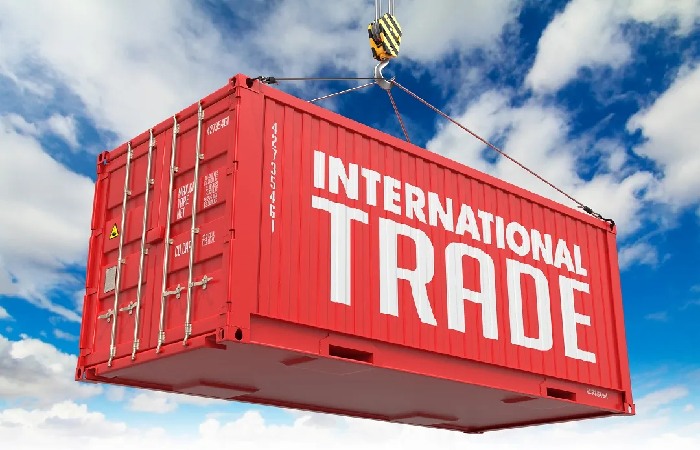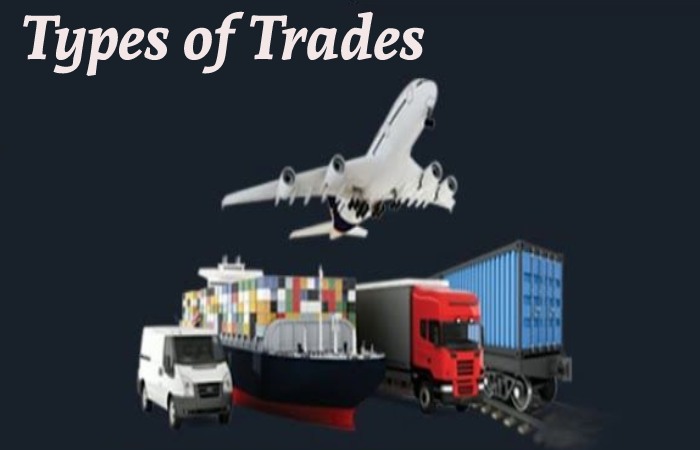Trade is a basic economic concept involving the buying and selling of goods and services, with compensation paid by a buyer to a seller.
It is one of the oldest and most fundamental human activities for building early economies and the flow and expansion of cultures.
Commercial activities have been one of the main occupations of people throughout history.
Especially after the rise of the bourgeoisie to power after the Renaissance and the subsequent onset of capitalism.
In this sense, the discovery of money was fundamental to its development, which made it possible to establish a valuation method or value assignment of the same order of magnitude for different products and services have to be given through exchange in the early days of humankind.
Table of Contents
International Trade
Nowadays, trade occurs at different levels inside and outside the country’s borders and brings a wide variety of products to possible consumers.

The size of this exchange is immense:
In 2018 alone, the exports of the least developed countries amounted to 8.779 trillion US dollars, of which 193 billion went to the most developed countries.
At the same time, an increase in world GDP can see. Or to put it more simply: In today’s world, more and more are being produced and commercialized.
Trading history
Commerce is as old as civilization. Their first manifestations appeared during the Neolithic and the emergence of agricultural and sedentary societies.
When cultivation maximized the food obtained and allowed its accumulation, the opportunity arose to exchange the surplus with other producers.
Thus, it was possible to maintain a varied diet and access other types of goods and services that everyone specialized in as new forms of production such as pottery, iron, and steel, and other activities emerged.
The Great Ancient Empires Trading
Empires were the trading centers in their respective regions where different trade routes converged.
Each had its currency, which reflected its culture and emblems and served as a wild card to facilitate exchanges between producers and traders.
The First Banks Trading
The first banks appeared in the Middle Ages, long before money was central to today’s society, thanks to the invention and expansion of capitalism in the 18th century.
Later, the expansion of European empires worldwide brought with it mercantilism.
The need for nations to control their trading activities, enrich themselves, and strengthen their states.
So trade took a considerable leap and eventually began to involve the flow of goods from one corner of the world to another, becoming an international activity.
Types of Trade
There are several ways to classify business activity. First of all, we have to differentiate the possible types of trade based on the volume of goods and the modalities of the sale as follows:

Wholesale Trade
Also known as “wholesalers” or “Resellers,” it is the buying and selling of goods that involves handling large quantities of goods at a low price.
Which generally intends to resellers who then go into retail and make a profit.
Retail Trade
Also known as “retail,” on the contrary, is the purchase and sale of goods on a small scale.
which as a rule takes place directly to the end consumer.
On the other hand, we can distinguish between the forms of trade based on the transport mechanism.
With which the goods transport from the producer to the consumer, i.e., land, sea, air, or river trade.
Trading over the Internet is also known as electronic trading or electronic trading.
Finally, we have to distinguish between:
Domestic Trade
It performs between people belonging to the same country and sharing the jurisdiction of the state.
Foreign Trade
It includes economic actors based in different countries.
Importance of trade
Commerce is a fundamental human activity, primarily responsible for the diffusion of knowledge, technologies, cultures, languages
And also, religions have enriched various human societies since ancient times.
In addition to production, it was also one of the most important economic activities of man. We currently owe the most significant volume of financial transactions in the world today.
Commercial Code
A commercial code is a systematized and unified set of commercial law regulations.
It is intended to regulate all forms of trade in a country and is part of its specific legal framework.

This type of treaty arose from the French Enlightenment and, in particular, from the changes in the law made by Napoleon Bonaparte.
Trade laws, along with specific special laws, allow the regulation of trade to ensure.
Its performance according to fundamental principles that respect the basic rules of any society.
